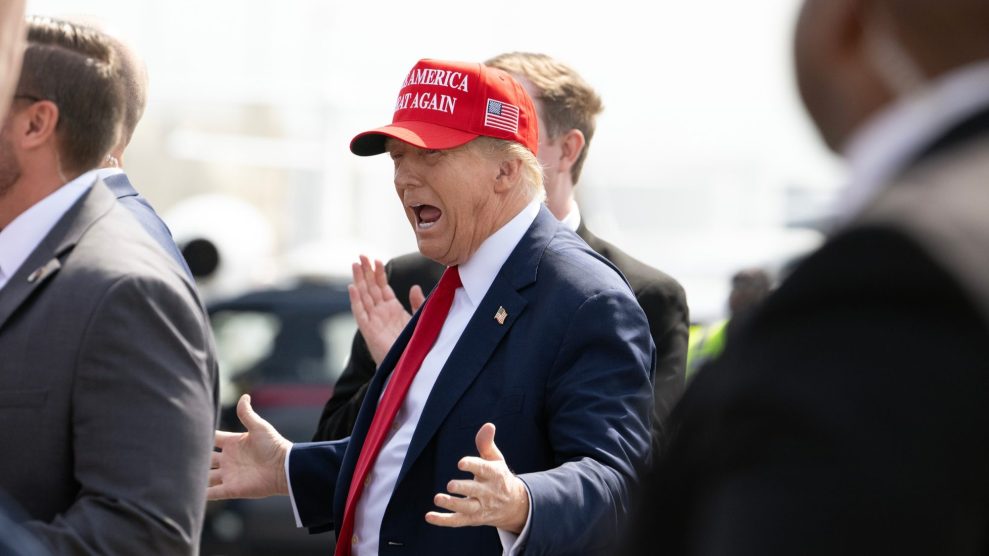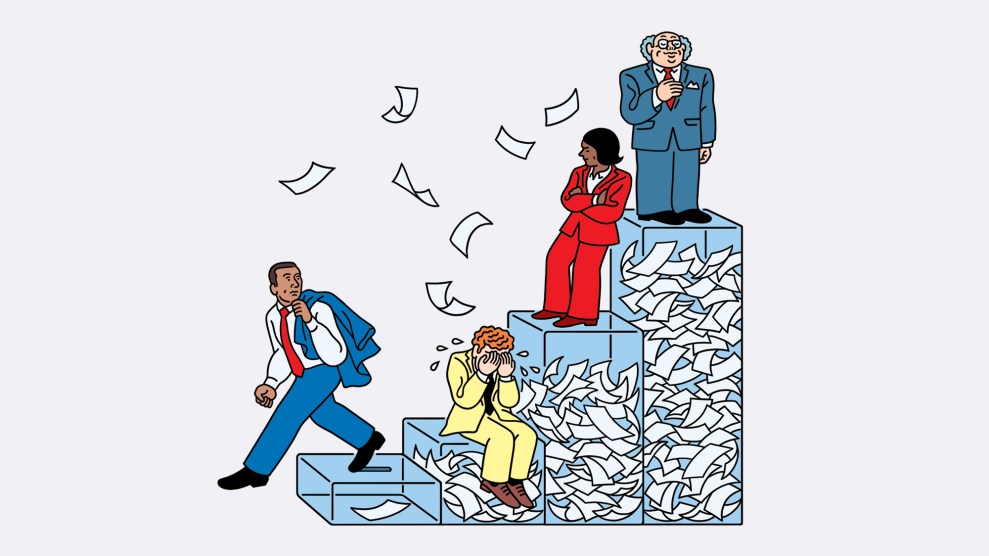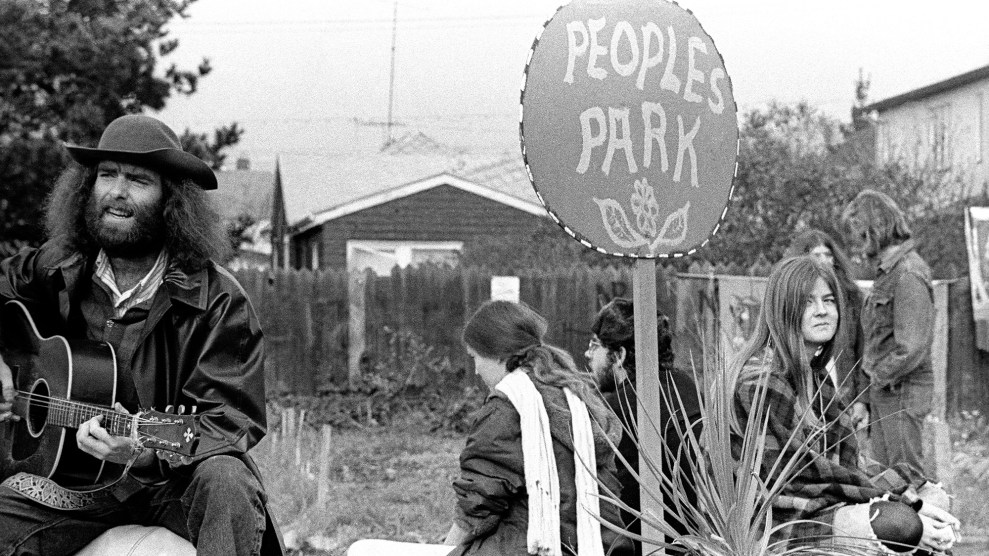President Barack Obama needs to get outside the Beltway.
Not necessarily by hopping on Air Force One (which he has yet to use), but by reaching out to the millions of Americans who are rooting for him in order to obtain their active support for his economic stimulus plan. In the first fortnight of his presidency, Obama has mainly played an inside game, as he has tried to win congressional approval of an economic recovery package. When the nearly $900 billion measure was being considered in the House, Obama largely deferred to House Democrats, who shoved many long-yearned-for spending initiatives into the bill. Thus, a 647-page creature was born, which included provisions easy for Republicans and conservatives to deride and oppose.
Obama also became somewhat snared in a bipartisan trap. Citing his campaign vows to transcend the SOP partisan politics of Washington, reporters covering the White House fixated on whether the bill was picking up Republican support in the House. And Obama appeared to be sensitive to this point, pushing changes (increasing tax cuts in the package, striking programs jeered by GOPers) to win over Republicans. Despite these efforts, not a single House Republican voted for the bill. And when there was no obvious popular outcry against the obstructionism of the House Republicans, Senate Republicans, no doubt, felt empowered to challenge Obama and the stimulus legislation. And early this week, Senate Democrats were saying that they might not be able to muster the 60 votes needed to fend off a potential GOP filibuster. On Thursday, Senate Majority Leader Harry Reid did say he believed he had the votes to pass the bill–but no slam-dunk was yet guaranteed.
What’s missing from all this? The people.
The Obama campaign mastered the art of political connection. It engaged millions of voters and volunteers, causing them to feel like they were part of a movement. It did so by effectively deploying new social networking tools and strategies and by fashioning a message that resonated. There had never been such a powerful use of both technology and tone.
That has not yet happened regarding Obama’s number-one governing priority. Obama has generally focused on pushing and pulling levers in the capital. And, it turns out, some are quite sticky. He has not done much to apply any pressure on the players within the capital.
This is a different approach than the one taken by Ronald Reagan, when he came to Washington in 1981 with the mission of passing an economic bill that contained deep tax cuts and draconian slashes in social programs. Reagan’s intent was to roll the Democratic-controlled House led by House Speaker Tip O’Neill. He was not concerned with scoring bipartisan points for their own sake. He wanted to win. And he took to the airwaves, giving nationally televised speeches, in which he urged his supporters to call their members of Congress and demand passage of this legislation. That lit up the congressional switchboard and nervous conservative Dems bolted their party to support Reagan’s legislation. Reagan used his communication skills and political pressure to get that bill passed. (I explain this further here.)
This week, Campaign for America’s Future, a progressive group that supports Obama’s plan, sent out an email to supporters reporting, “We’ve gotten word from our progressive friends on Capitol Hill that for ever one hundred phone calls to Congress from conservatives trying to obstruct change, there is only one phone call from a citizen demanding passage of President Obama’s economic recovery bill.” If that’s so, it’s dire news for the Obama White House.
Obama has the communication skills of Reagan plus communications technologies that the Gipper could not have dreamed of. But he is only now beginning to ramp up. On Thursday, Obama published an an op-ed in The Washington Post, making the case for the stimulus plan. And he used some tough language: “And if nothing is done, this recession might linger for years. Our economy will lose 5 million more jobs. Unemployment will approach double digits. Our nation will sink deeper into a crisis that, at some point, we may not be able to reverse.”
The White House also released a report showing what it contends are the numbers of jobs that would be created or saved in each state by the recovery package. But on Thursday afternoon, the White House website’s four top stories featured nothing about the stimulus bill. Instead, there was a four-day-old posting on Obama’s Super Bowl party at the White House. There was a link to the Post op-ed article at the bottom of the page. But if a visitor clicked on the “Economy” button on the “Agenda” list on the site’s front page, he or she was taken to a page featuring an Obama economic address from January 8. Why did the site not have an easy-to-find and simple list of all the good stuff in the stimulus bill?
Organizing for America, the continuation of the Obama campaign, also has begun to rally support for the stimulus bill. This weekend, it will mount “Economic Recovery House Meetings”, where Obama supporters can gather and discuss Obama’s recovery plan. Virginia Governor Tim Kaine, the head of the Democratic Party, will make a video presentation about the stimulus bill at these sessions. A few days ago, the group sent out a letter signed by Obama to the 13 million or so Obama backers on its mailing list, and the president urged them to lobby friends and neighbors about the plan–but not lobby Congress.
This is not quite a fierce flexing of political muscle. (Organizing for America doesn’t yet have a comprehensive stand-alone website; it can be reached through DNC.org or barackobama.com.) But Obama is heading toward more conventional rally-the-troops tactics. He is expected to hold a prime-time news conference on Monday, where he will hammer home his case for the stimulus bill. And he is considering making an Oval Office speech on the subject–a la Reagan.
In the past two weeks, Obama and his aides have encountered the typical difficulties of Washington. It’s hard to find experienced influence-makers for high-level appointments who are not tainted by the town’s K Street culture. It’s tough to score bipartisan points by working with partisans. It’s a bitch to ask Capitol Hill machers to change their ways (of appropriating and legislating). It’s not easy to control the message when a cacophonous media focus (sometimes rightfully) on missteps and conflict.
What Obama has that none of the other players in Washington possess is political capital. He literally represents the hopes of millions. He harnessed those aspirations for his campaign. He must do the same for his presidency.
UPDATE: On Thursday night, Obama began to take off the gloves, as he spoke more sharply about GOP criticism of the stimulus package. But he did this before House Democrats at a retreat in Williamsburg, Virginia. The issue is whether he will use such tough talk to mobilize a larger audience.
MORE UPDATE: On Friday afternoon, I asked White House press secretary Robert Gibbs if Obama would mobilize the 13 million names held by Organizing for America in order to win passage of the stimulus bill. He did not give a direct answer.
















